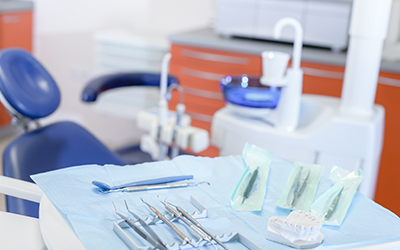Image Credit:
File ID 25059791 | © Candybox Images | Dreamstime.com

Have you ever wondered what risks might come with oral surgery? Understanding potential complications can help you feel more prepared
One of the most common risks in oral surgery is infection. After a procedure such as bone graft dental surgery or a dental implant, bacteria can sometimes enter the surgical site, leading to an infection. While this risk is low, following your periodontist’s post-operative care instructions closely
Nerve damage is another potential risk, particularly with procedures like dental implants in Portsmouth that involve drilling into the jawbone. Though rare, this can lead to numbness, tingling, or pain in the lips, tongue, or chin. Most cases of nerve damage are temporary, resolving over time, but in rare situations, the effects can be permanent.
There's a slight risk of sinus complications for patients requiring bone graft dental surgery in the upper jaw. This happens when the upper jawbone is very close to the sinuses, and the sinus cavity may accidentally be opened during surgery. This can lead to discomfort or sinus infections, though it’s treatable and preventable with proper planning.
Post-surgical bleeding is common, especially with gum surgeries related to periodontal disease treatment. In most cases, bleeding subsides within a few hours, but excessive or prolonged bleeding can occasionally occur. Applying pressure with gauze and avoiding strenuous activity for the first 24 hours usually helps, but consult your periodontist if the bleeding persists.
In short, periodontal disease treatment has some risks. However, proper care and advanced techniques help minimize complications. At Coastal Periodontics, we prioritize your safety during procedures like dental implants in Portsmouth. Ready to discuss your options? Contact us today for personalized expert care.